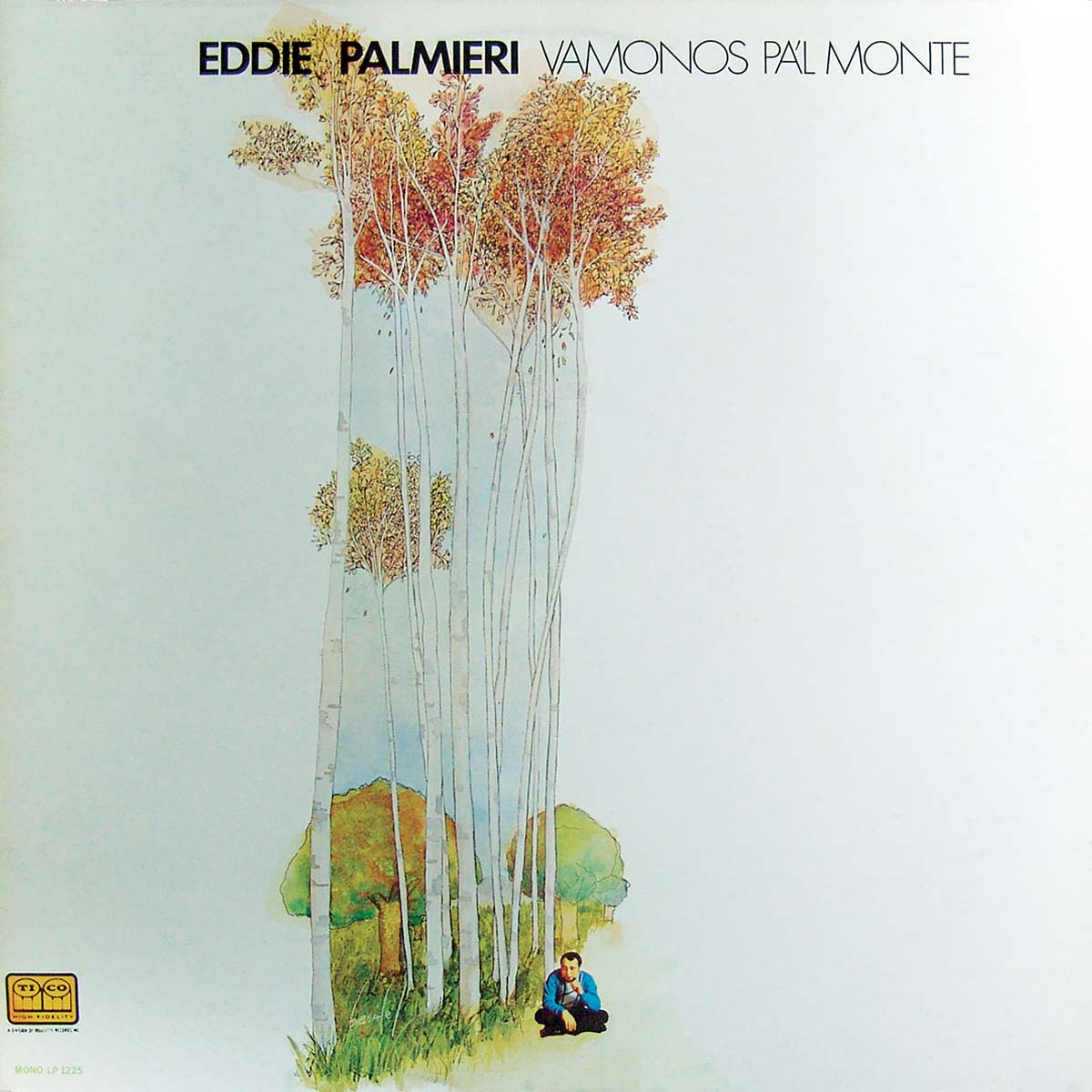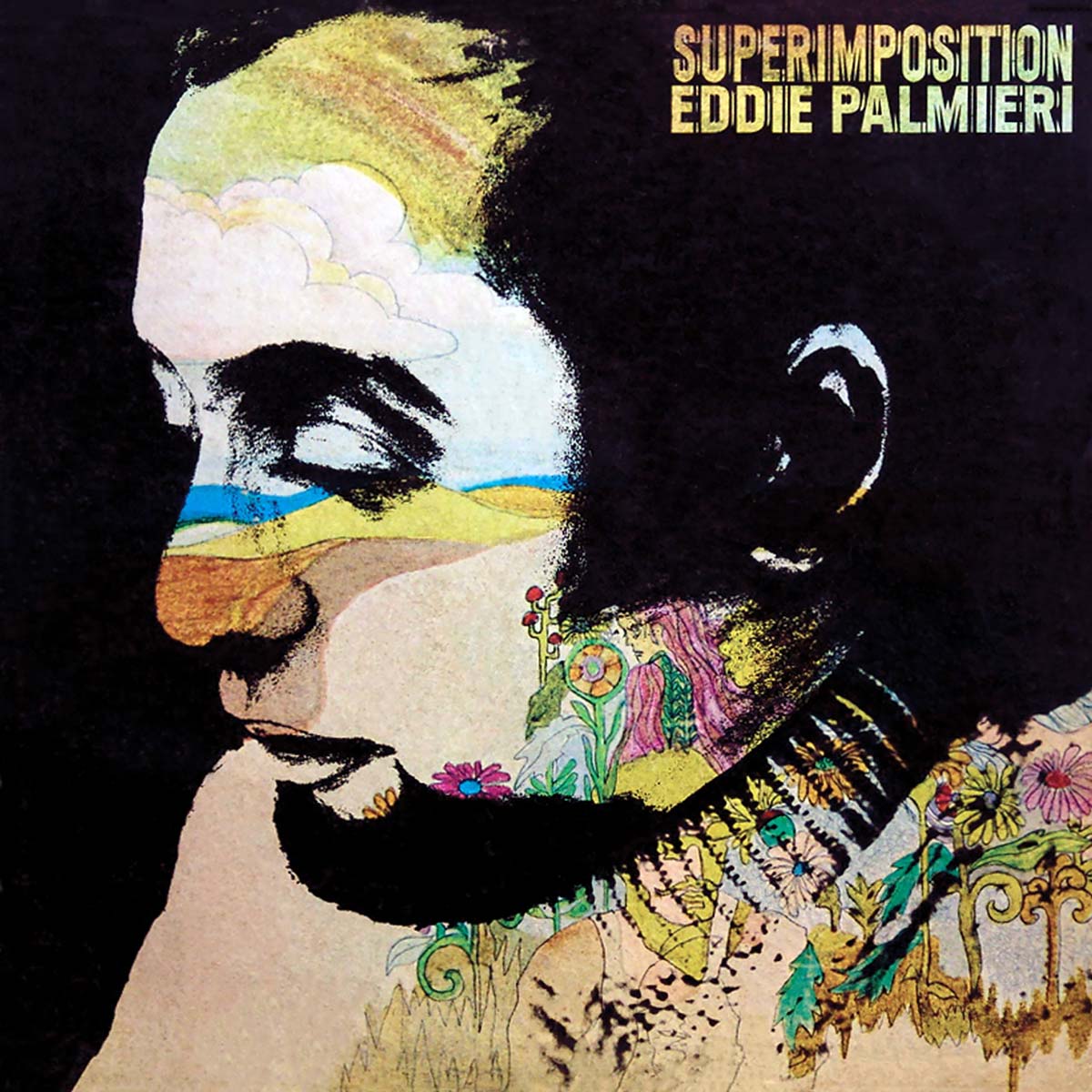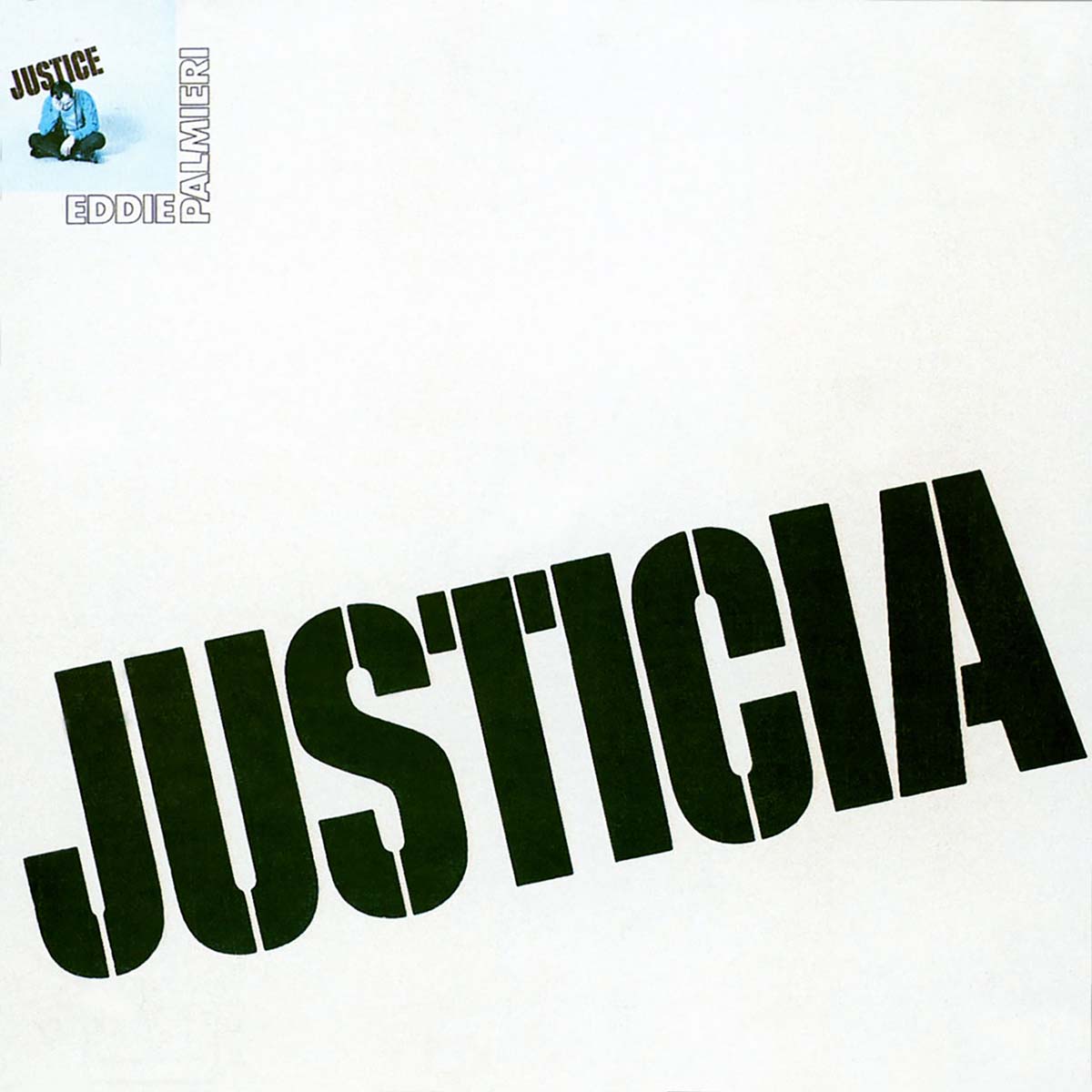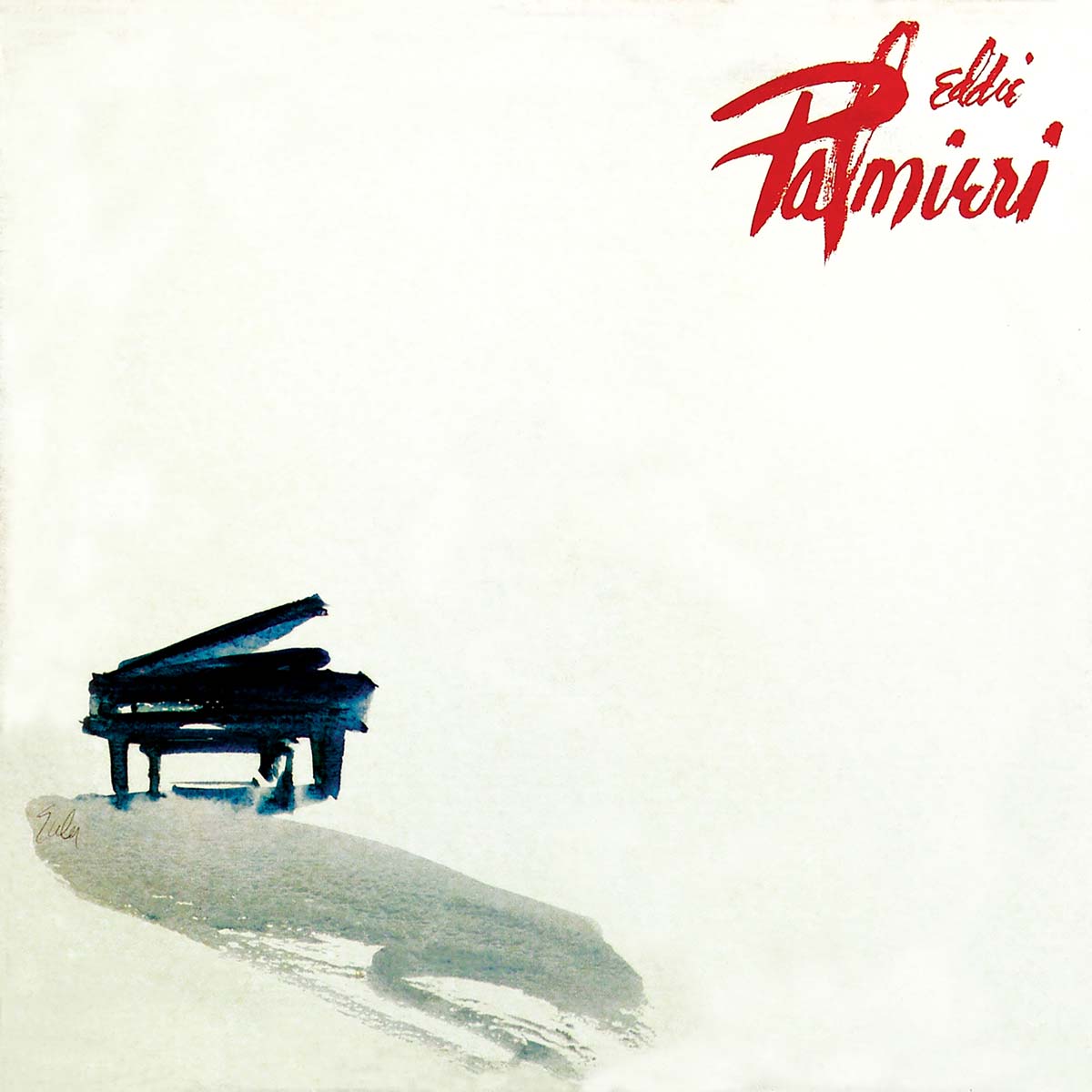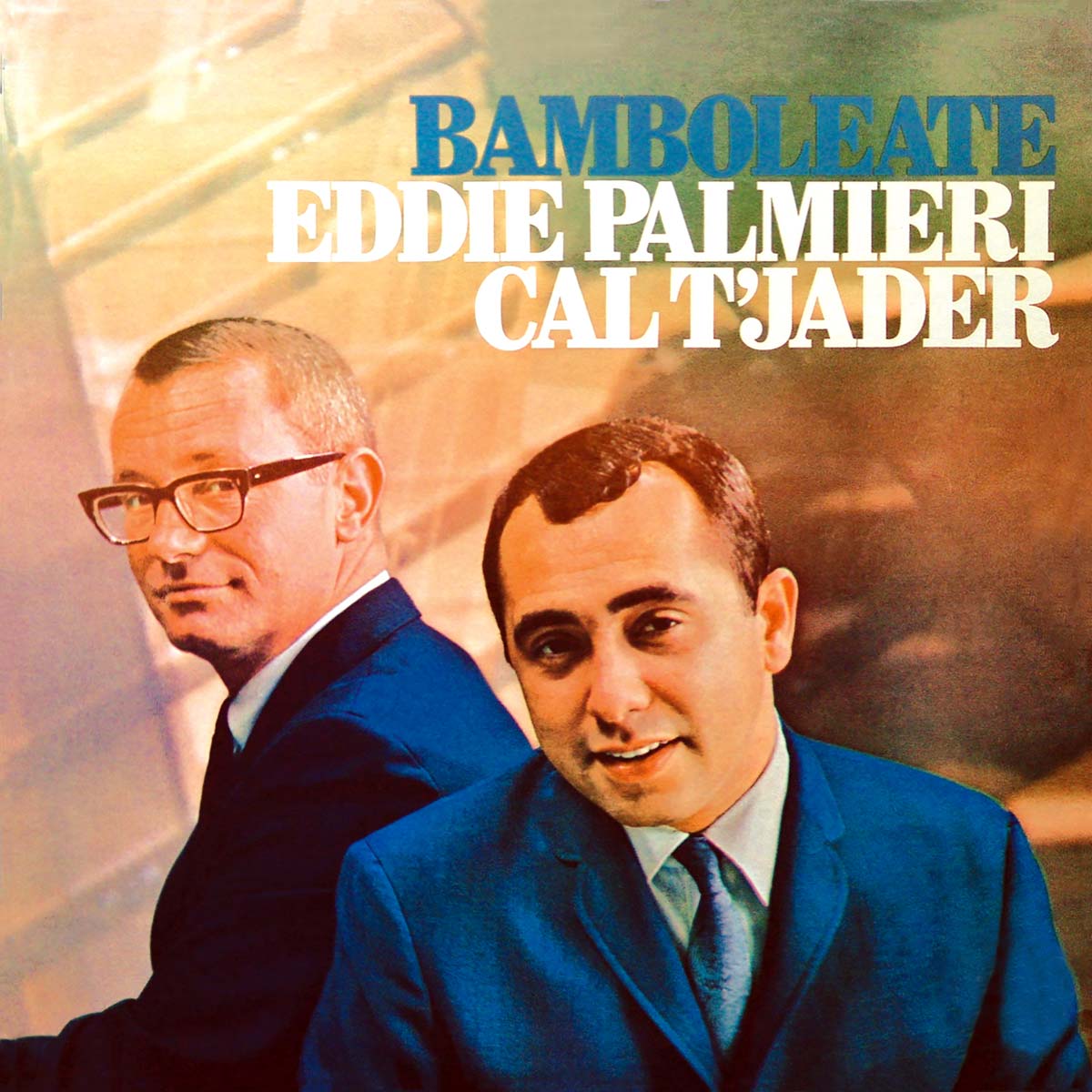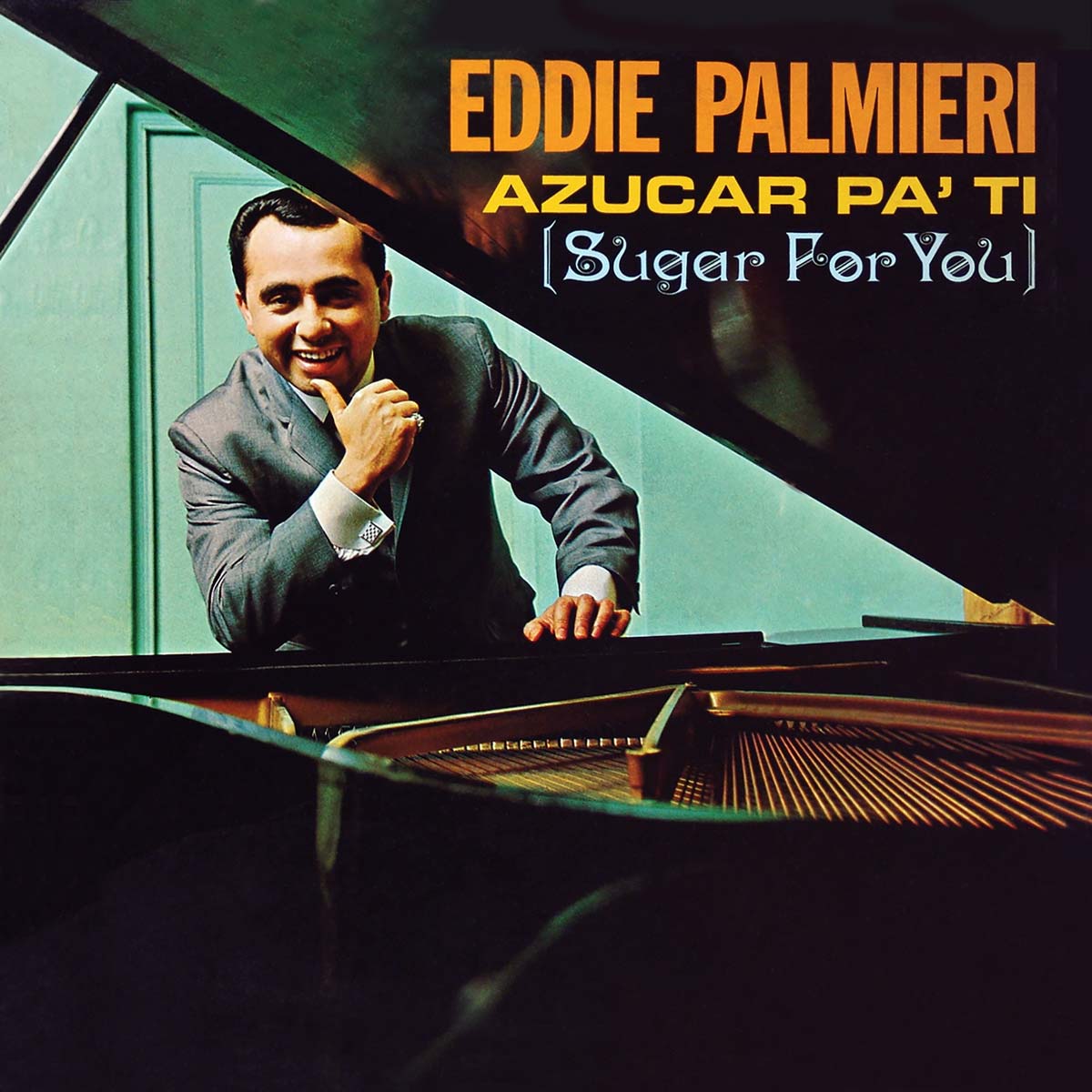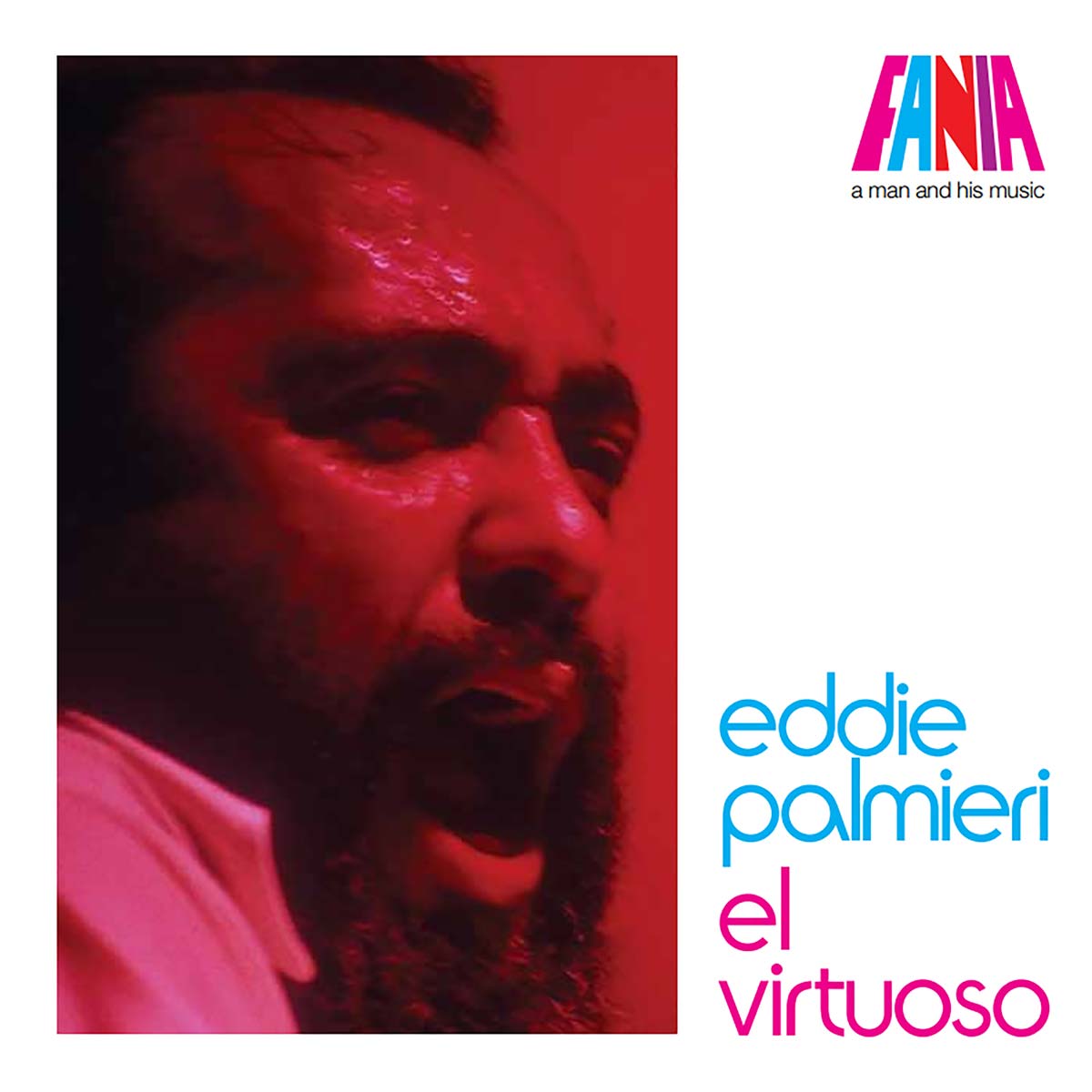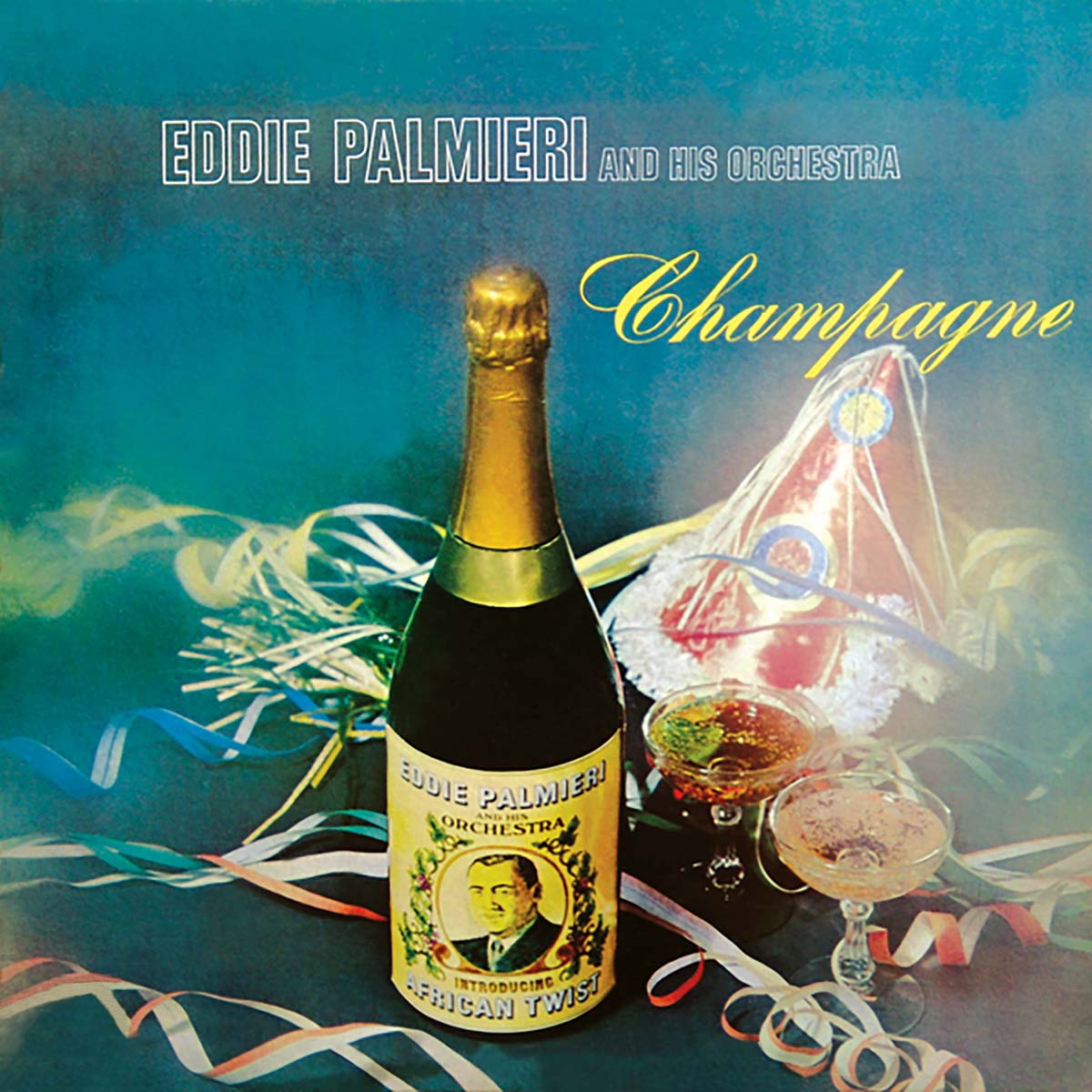
A transitional recording during a time of rapid societal change, “Champagne” marks the morphing of mambo to salsa in New York City with boogaloo as its bridge. Although mortally criticized by established bandleaders, the industry, and musicians alike, these groups could not afford to ignore this fusion of Latin rhythms with R & B back beats driven by English/Spanglish lyrics that reflected those times in the inner city.
Eddie followed this lead (as did big brother Charlie Palmieri on the Atlantic Records’ Latin Boogaloo recording), toasting us with a powerfully creative and unbridled bottle of musical “Champagne”. By 1968, Eddie’s original La Perfecta had broken up. Eddie went on to study with Bob Bianco, also appearing on that year’s debut recording of the Fania All Stars at the Red Garter. Producer Pancho Cristal paired Cheo Feliciano with Palmieri, since the vocalist was already hot on the boogaloo scene with Joe Cuba. But Cheo’s addictions made him difficult to find. What’s more, once in the studio he had a hard time focusing, prompting Eddie to rely on one of the few loyal musicians to stick it out with him— Ismael “Pat Quintana—who then finishes this recording when Feliciano can’t be found, while singing background on the tunes Cheo does manage to finish.
Israel Cachao López had just hit New York and formed part of this new Palmieri sound as did Alfredo Chocolate Armenteros executing some fiery solo work throughout. Palmieri featured Chocolate, Rodgers, and López as frontline performers converting this boogaloo production into a hard-driving, hard-swinging representation of musical change and creativity during a time of societal revolution. The opening number fuses jazzy ‘bone licks onto an R & B boogaloo format, featuring a driving funky bass line, a haunting female R&B styled oooh- ahhhh behind the coro. “Ay Que Rico.”
Pat Quintana brings us back to those 1960s, smoke-filled clubs where, no matter what genre was hot, there was always room for a romantic ballad. “Delirio” features some beautiful trumpet licks by Chocolate that seem to dance along with the ‘bones of Rogers and Brazilian José Rodrigues. Going back to a saucy son montuno/cha cha-style that just pays lip service to boogaloo, Palmieri gets us back to salsa dancing on “Cinturita”. Cachao’s funk-based, lyrical thumping is punctuated by some crisp conga beats of Luis Miranda or Ray Armando with some nasty trumpet work from Chocolate making this number a definitive classic featuring Pat Quintana working those great soneos here. “Busca Lo Tuyo” rocks with funky bottoms, crispy coros and Cheo’s smooth tenor leading us on. Rogers shines on this ‘bone solo that seems to be following the rhythmic solfeggio of the vocalists’ flowery verse style. But all was not well with Cheo during this recording. Written by Marcelino Guerra, “Busca Lo Tuyo” became busca a Cheo.
As Eddie recalls, Cheo was literally on the floor of the studio when he walked in, trying to sleep after several restless nights. Once Eddie got him up, what came out of Feliciano was sheer beauty. After this recording, Cheo got himself into a drug treatment program, completely changing his life. Cynthia Ellis turns us on next with her rendition of African Twist. This number made the hit parade charts, and although Eddie may have conceded to the genre for monetary purposes, on a social level he managed to bridge two communities at a time of struggle with a soothing blend of music that related to our urban realities. “Palo De Mango” takes us back to the cha-cha with Quintana fronting the band before we polish off our “Champagne” with Arsenio Rodríguez’s tune, “Si Las Nenas Me Dejan, Que”, featuring Barry Rodgers on tres playing with such dexterity and skill one might think it was Arsenio himself re-united with Chocolate. Just one of the many reasons that make “Champagne” the classic you hold in your hands.
Credits: Eddie Palmieri – Piano, Leader Israel “Cachao” López – Bass Alfredo “Chocolate” Armenteros – Trumpet Roy Román – Trumpet Lew Soloff – Trumpet George Castro – Trumpet Barry Rodgers – Trombone, Tres Jose Rodríguez – Trombone Luis Miranda – Congas Nicky Marrero – Timbales Ray Armando – Congas Vocals – Cheo Feliciano, Cynthia Ellis, Ismael “Pat” Quintana Produced by Pancho Cristal
Written by Aurora Flores


